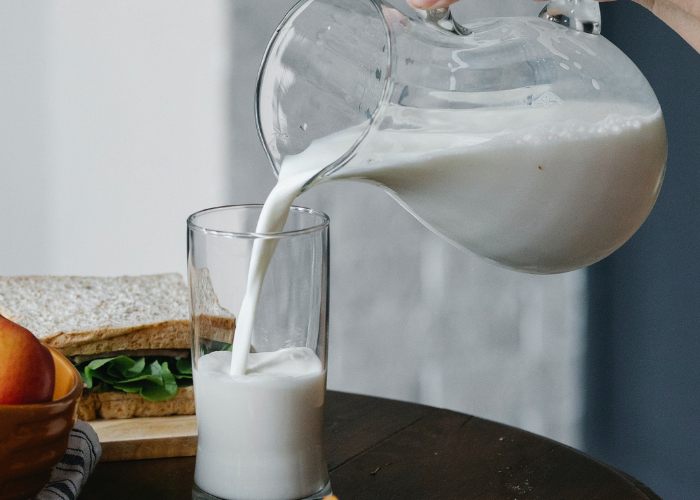What are Milk’s 13 Essential Vitamins and Nutrients?
By Alyssa Greenstein, RD, LD/N, FAND & Victoria Pakizer

Do you know why the Dietary Guidelines for American recommends three servings of milk, cheese, and yogurt daily in order to reach peak health and wellness? Because milk and other dairy foods are jam packed with 13 essential vitamins and minerals, including 3 of the 4 nutrients Americans aren’t getting enough of: calcium, vitamin D, and potassium. Milk is the number one food source for all three in the typical US diet. The best news? It doesn’t matter what kind of milk you drink - flavored, low fat, organic, lactose free, etc . . . - as long as it’s cow’s milk, it has all the same delicious and nutritious benefits.
Most people know milk is an excellent source of calcium, but don’t know about all the other fantastic vitamins and nutrients in milk! Here’s a brief rundown of milk’s 13 essential nutrients and how they help your body stay happy and healthy.
Milk’s 13 Essential Vitamins and Nutrients

- Calcium: plays a vital role in teeth and bone health (including reducing stress fractures).
- Protein: rebuilds, maintains, and repairs body tissues; aids in immune function; and provides essential building blocks for bones, organs, muscles, nails, and hair.
- Vitamin D: aids in immune function, helps with calcium absorption, and is essential for bone and teeth health.
- Vitamin B-12: helps build red blood cells, aids in breaking down food into fuel, and supports the central nervous system.
- Vitamin A: aids in immune function, helps keep skin and eyes healthy, and promotes growth.
- Phosphorus: promotes bone strength and supports healthy tissue growth.
- Riboflavin (B2): aids in converting food into energy and in developing the central nervous system.
- Niacin (B3): helps break down enzymes so they can be used as energy.
- Pantothenic Acid (B5): helps break down food into fuel.
- Zinc: helps maintain the immune system, normal growth and development, and healthy skin.
- Selenium: regulates metabolism, protects healthy cells, and maintains the immune system.
- Iodine: is necessary for bone and brain development during pregnancy and infancy and linked to cognitive function in childhood.
- Potassium: supports heart health and normal muscle function and regulates blood pressure and body fluid balance.
More than Bone Health!

While milk is most well-known for improving bone health, enjoying milk, cheese, yogurt, and other dairy foods benefits your body in many other ways too. Dairy has vitamins and nutrients vital for bone and teeth health; immune function; turning food into usable energy; promoting skin and eye health; supporting the central nervous system; rebuilding, maintaining, and repairing body tissues; and providing essential building blocks for bones, organs, muscles, nails, and hair.
Milk’s protein is especially noteworthy. Milk has high quality protein that provides essential amino acids your body can't make on its own. These two types of protein (casein and whey) both occur naturally in milk’s liquid and powder form, which can be mixed in with other foods like smoothies, milk shakes, and soups to boost protein content.
Healthy eating that includes low-fat and fat-free dairy foods have been linked to health benefits such as reduced risk of cardiovascular disease and type 2 diabetes and improved bone health (especially in children).
Want to include more milk, cream cheese, and yogurt into your diet? Then check out these tips and tricks to make your recipes more delicious and nutritious with dairy and see all our dairy delicious recipes here.






